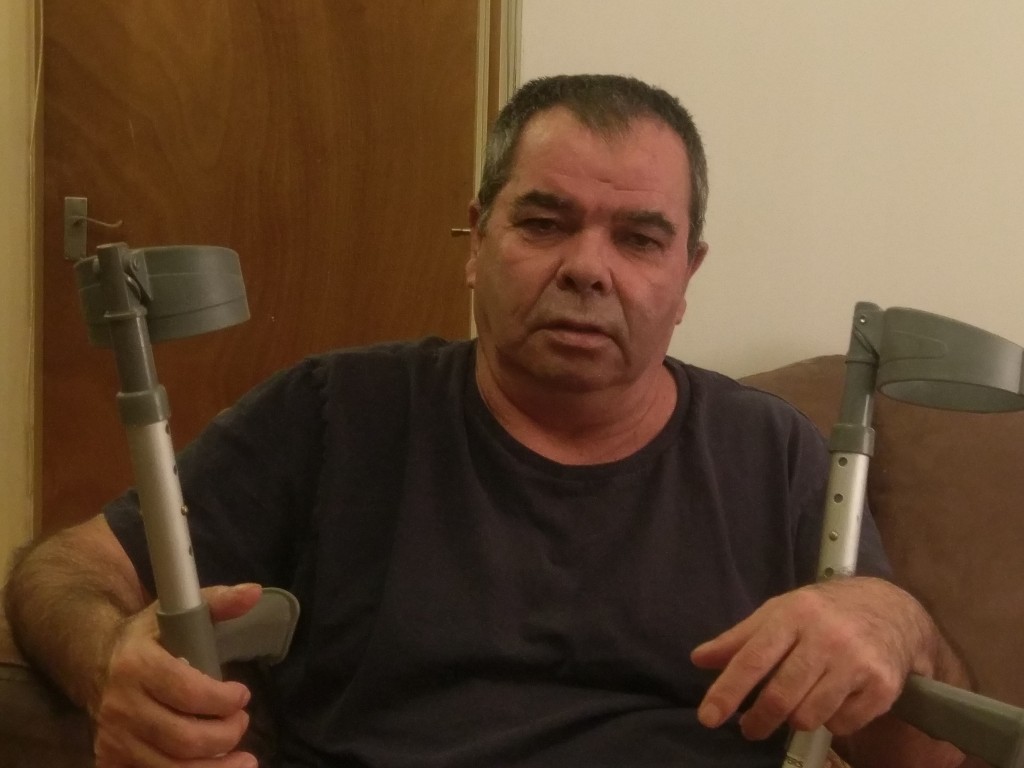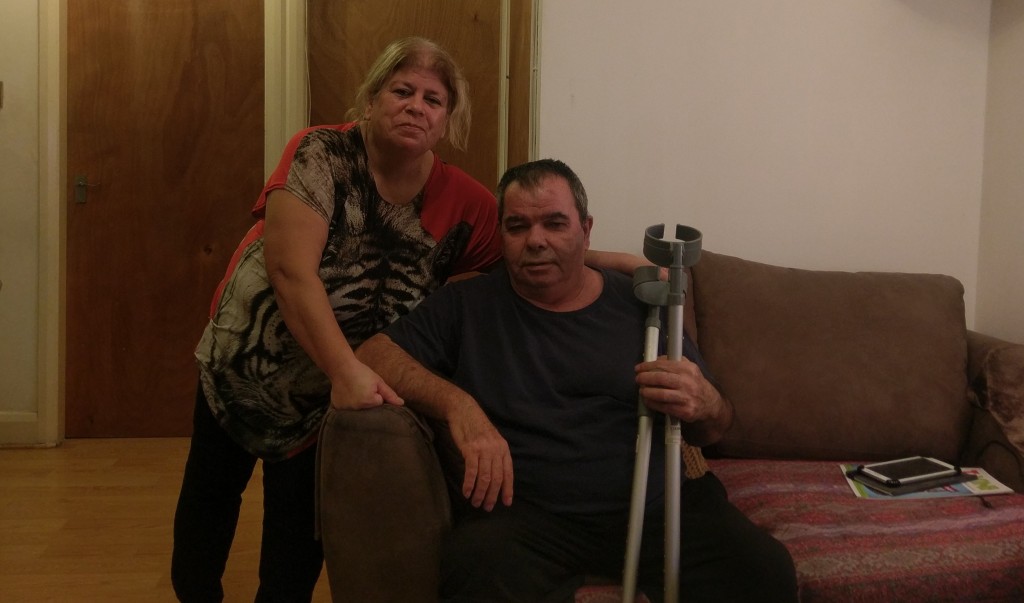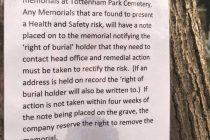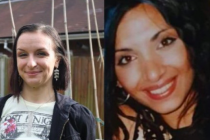A 61-year-old Turkish Cypriot man with severe mobility problems is a virtual prisoner in his own home due to a chronic shortage of social housing in his borough and the unwillingness of the council’s independent medical advisors to upgrade his priority status.
Soner Sabriler lives in a small, 2-bedroom, first-floor flat off Green Lanes, Harringay, with his wife and 15-year-old daughter. Since 1997, he has undergone seven major surgeries on his spine, but his crippling back pain – for which he is prescribed morphine – has got worse and his condition has left him unable to stand or walk unaided.
The wheelchair user cannot make his own way up and down the two flights of stairs that link his flat to the building front door. It means the father-of-one is stuck indoors for days on end.
His situation is compounded by the fact that Haringey Council is unable to make essential mobility adaptations to the building, as Mr Sabriler is a private tenant and does not own his home.
Yet his situation is not deemed a priority by the council, who placed his 2014 application to be re-housed in a ground-floor flat as the lowest C category on its housing registry, meaning he could wait for over a decade before a move is possible.
Mr Sabriler’s plight was first highlighted by Alp Ermiya last month who was moved to tears after visiting him at his home.
Posting pictures on his personal Facebook page, the Kıbrıs Genç TV UK head wrote: “Gercekten ben agladim …..engeli diyorlar ama engeli insanlar koyuyor” (I really cried…they say disabled, but it’s people who are creating the obstructions’).
I contacted Mr Sabriler shortly after seeing Alp’s post and was invited to visit the Sabrilers at their home to see first-hand their predicament. On 7th December, I did just that and over a cup of Turkish coffee I heard what a nightmare the family have been living through.
‘It all started with a slipped disc’
Originally from Famagusta in Cyprus and a driver by profession, Mr Sabriler was diagnosed with a slipped disc in 1995 by his GP, Dr H Salih, based in Church Street, Stoke Newington. His pain got progressively worse and he was signed off sick until he was able to have corrective surgery on the cartilage damage in his spine.
He was operated on at Stanmore Hospital in 1997, with the surgeons repairing his 3rd lumbar spinal disc (L3). A month later the pain returned and the procedure was repeated a year later, this time on his L4.
Between 1998 and 2004, Mr Sabriler was treated with a large assortment of medicines and injections to combat his acute back pain. In 2004, as he was not responding well to the treatment, the doctors decided it would be best to insert platinum plates into his vertebrae. This spinal fusion involved screwing plates to his L3 and L4 in another arduous surgical procedure.

Two years after his 2004 operation, the pain was back and had intensified. His physicians continued to prescribe Mr Sabriler super-strength pain killers that knock him out.
‘By 2012 all his teeth had fallen out’
By 2012 all his teeth had fallen out. He was later told by his physician that one the screws had become infected and was slowly poisoning his body.
Mr Rohil Shetty, a consultant surgeon at Whittington Hospital’s Trauma and Orthopaedics, booked Mr Sabriler in for an urgent operation as the infection was spreading. On 6 May 2014, he was admitted to UCL Hospital, where the surgeons replaced the platinum plates and cleaned up the infection.
His doctors told him the operation had gone well and Mr Sabriler remained at the hospital recuperating. After spending 14 nights there incident-free, he woke up one night completely soaked. He takes up the story:
“I woke up drenched. My first thought was I had wet the bed.”
“I was drenched. My first thought was I had wet the bed. But I hadn’t. It turns out I had a huge swelling on my back that had burst, like a balloon.”
“It was 3am in the morning. An hour later I was rushed to surgery. When I came out, I was kept in intensive care. When my condition became stable, I was moved to a regular ward.”
“A week later, the same thing happened. I woke up in the middle of the night soaked. Again the hospital called Dr Shetty. Again he came and operated [on me].”
“I had three major surgeries in four weeks. My doctor said I had a bad infection that had spread across my body. Within days of my third surgery, the situation repeated itself again, but this time Dr Shetty refused to operate. He said I was too weak.”
“I cried when I was finally told the infection had gone”
“I was sent home and given 500 mg of anti-biotic [tablets] to take sixteen times a day to try and bring the infection under control. I also had 24-hour nursing care. It took a month, but it worked. I cried when I was finally told the infection had gone.”
In order to keep his body infection and pain-free, not only did he take the 16 anti-biotic tablets every day, but 15 others too. That’s nearly a thousand tablets a month! Since his 2014 operations, his prescribed medication has also included morphine and sleeping tablets.

Even with all the medication, Mr Sabriler continued to experience severe pain at the base of his spine. An MRI scan and X-Rays found that one of the screws had come loose. Unable to move because of the pain, he was told he needed another operation to fix the problem.
He returned to UCL in February 2015. The eleven-and-a-half hour procedure was deemed a success and after a fortnight, he was sent home. He was advised by his physicians not to walk around too much as his bones had deteriorated through the infection from the platinum screws and he was given a wheelchair to aid his mobility.
His consultant Mr Shetty and another specialist, Mr Huan Wee Chan, a neurosurgeon, both wrote letters to his local authority in May 2015 explaining his poor state of health and urging that he be re-housed.
Having heard nothing from their 2014 application for a ground-floor council flat and experiencing greater mobility issues than ever, Mr Sabriler and his wife Zalihe, brought the matter up with Ali Özbek, the Mayor of Haringey. Being of Turkish Kurdish origin and a pharmacist by profession, Mr Özbek was able to converse with the couple about their problems in Turkish.
Mistakenly thinking the Mayor is “the head of the council” – a common misperception among the foreign-born UK Turkish community – the couple pleaded with him for help, saying their life was intolerable in their existing flat. Mr Özbek advised them to bring him copies of his doctors’ letters and housing forms, which they duly did. He promised to see what he could do and also told them to speak to their new local councillor, Emine Ibrahim, herself of Turkish Cypriot origin.
Mrs Sabriler: “For years, I have had to share a bed with my daughter”
More than a year has passed and there has been no further news from Mr Özbek, nor any change in Haringey’s Housing’s view of their housing situation.
I asked Mrs Sabriler how she was coping. Her first thoughts turned to her daughter, now aged 15:
“For years, I have had to share a bed with my daughter, because my husband’s illness and pain is so severe I cannot sleep alongside him. The bedrooms are too small to accommodate two single beds. So my daughter has no privacy, no space. She finds it hard to do her homework or have friends over.”
“It’s hard. We are all on top of each other here. All my husband can do is go from his bedroom to the living room or the bathroom. He gets really frustrated.”
Mrs Sabriler also explains how impractical their home is:
“We have a tiny shower room with a toilet and wash basin. The council said we can’t convert it into a wet room because this is privately owned and it’s not ours. Yet Soner can’t go to the toilet or bathe himself without my help, and there is barely enough room for the two of is in there.”
Her husband interjects:
“Our landlord has been really sympathetic. It will be 10 years in March that we have lived here. As soon as he heard about my big operation in 2014, he came and asked what he could do to make things easier. He made some minor adjustments to the flat to help me move around more easily. But ultimately we all know this space is not practical for me.”
“I need to be on the ground floor, so I can get in and out with a wheelchair. Now I am stuck indoors all the time.”
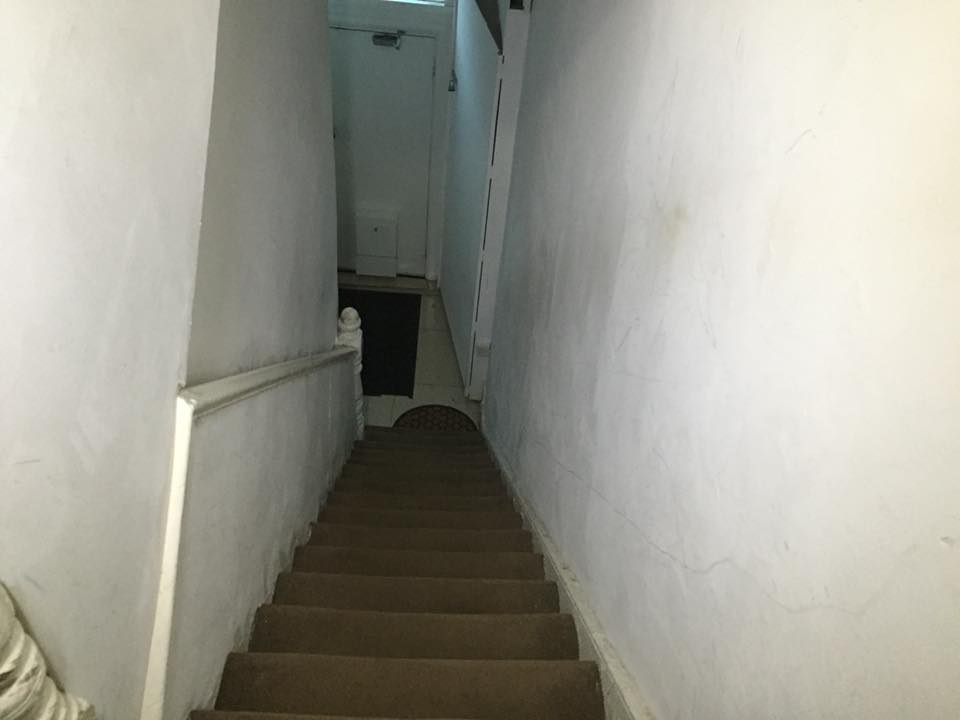
Currently Mr Sabriler has to navigate 21 steps from his flat to the building front door. The staircase is too narrow for a stair-lift or a second hand rail, and the steep steps make it dangerous for him to attempt walking up and down by himself.
His wife will call another neighbour to help so Mr Sabriler can lean on two people to help maintain his balance. Not wanting to be a burden, she says they only ask for his help a few times a month, usually when he has to see the doctor.
Cllr Ibrahim: Mr Sabriler’s current tenancy “is absolutely inappropriate for his needs”
Earlier this year, his doctors advised Mr Sabriler his chronic back pain would not improve without further surgery. A multi-disciplinary team is needed, as his back is so badly scarred from previous operations, they need to access the spine from another angle.
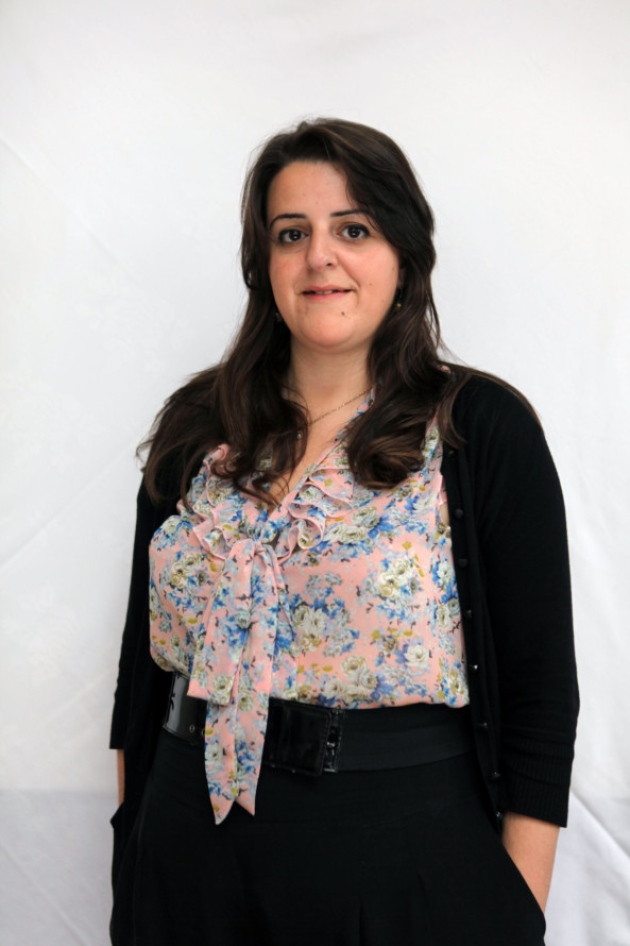
The new operation, scheduled for early 2017 – as soon as all the doctors are free – comes with major risks, as he could remain wheelchair-bound for the rest of his life. It’s a chance Mr Sabriler is willing to take. Currently he can only walk a few steps at a time using crutches and his pain remains “unbearable”.
After my visit, I contacted Cllr Ibrahim to ask why the Sabrilers were not being housed. She told me she knew of them when she was a local advice worker, confirming what I had sensed, that they were “a really lovely family.” She was not aware how bad his health had become and having also seen Alp Ermiya’s Facebook post, recently visited them.
She acknowledged that Mr Sabriler’s current tenancy “is absolutely inappropriate for his needs,” but added that while he has a “severe disability” the council “can’t help him if they don’t know [about these problems]”.
She believed the issue was due to the family failing to submit an updated medical form to Haringey’s Housing Department, giving the council vital information about his worsening condition and detailing how his current home was unable to meet his basic needs.
The Sabrilers refute this. Although they had not initially completed a medical form, they did so after being prompted by the Council in June 2015. Zalihe Sabriler said: “Everything the council asked from us, including a medical form, we submitted to them by hand last year.”
‘The council’s assessment failed to change their housing needs category, keeping them in the lowest priority group’
The couple were supported in their application by the Turkish Cypriot Women’s Group, which is based a few doors down from where they live. Responding to Alp Ermiya’s 27 November post, Serife Yusuf from the TCWG wrote on Facebook:
“We, as Turkish Cypriot Women`s Project, have been helping this family for a number of years and have done everything we can to support the family including referral to local MP for housing support. Now it is up to Haringey Council to re-house this vulnerable family as a matter of urgency.”
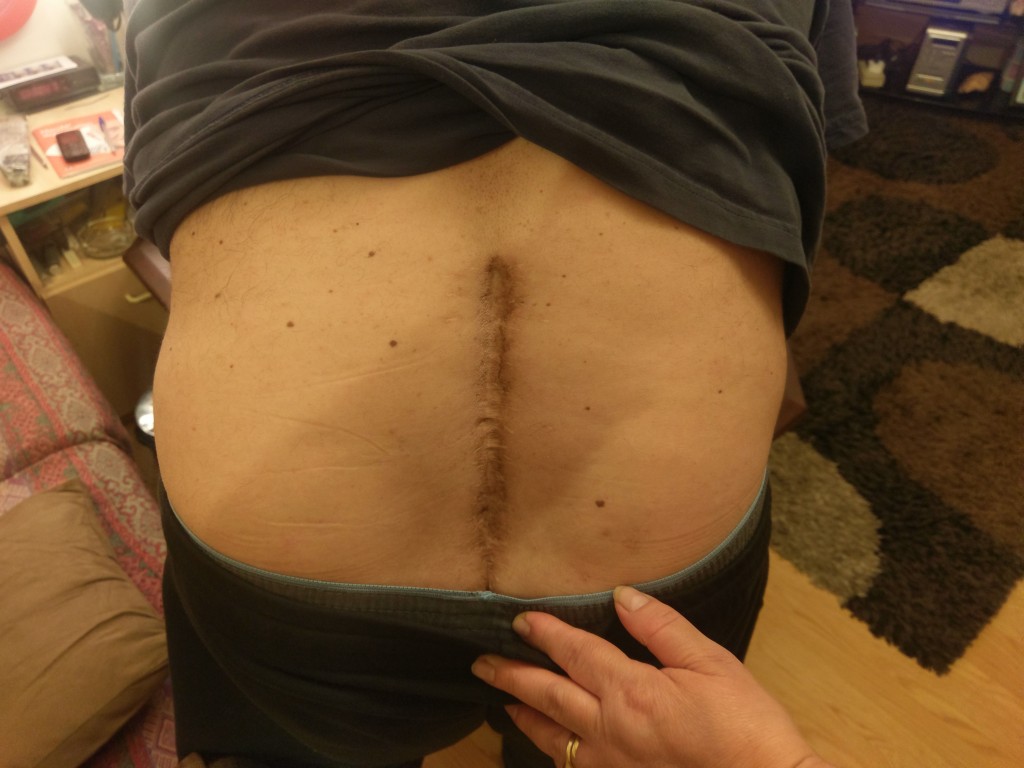
Mr Sabriler shows me letters of support they have received from his local MP David Lammy and neighbouring MP Catherine West. T-VINE was also sent copies of the documentation and form submitted by the Sabrilers, as well as the reply by Haringey Council, which acknowledged receipt of these.
In their letter dated 10 Dec. 2015, the Council informed Mrs Sabriler that an ‘Independent Medical Advisor’ had reviewed the information they had provided and decided the family’s housing need was a ‘ground-floor flat or a flat accessible by lift’. However, the council’s assessment failed to change the Sabrilers’ housing needs category, keeping them in Band C – the lowest priority group.
Cllr Ibrahim accepted the council needed to review Mr Sabriler’s situation “immediately”. She also felt that people from vulnerable communities whose English language skills were limited did not know how the system worked. She felt the situation had become worse through extensive funding cuts, resulting in a loss of local translators and advice workers.
While her role as a local councillor does not permit her to fill in forms on her constituents’ behalf, Ms Ibrahim has pledged to track Mr Sabriler’s case until it achieves a satisfactory conclusion. But that may still be many years off.
Scale of housing crisis in Haringey: council owns 16,000 properties, has 8,500 on its waiting list, with just 400 properties available each year
T-VINE approached Haringey Council to ask about both Mr Sabriler’s situation and social housing needs in the borough. Sophie Hoskins responded on behalf of the council’s Housing Department:
We asked her what the council’s criteria for housing priority is and what circumstances are judged more of a priority than those of Mr Sabriler. She replied:
“Many different factors have to be taken into account, and where a person’s health is a factor to consider, an independent health assessment must be carried out to categorise the urgency of that medical need. Where circumstances change, for example a deterioration in health, a new health assessment should be carried out.”
She sign-pointed us to this 11-page document that offers a “summary” of Haringey Council’s Housing allocations policy.
We asked her about the housing shortage in the borough versus the situation elsewhere in the capital. Ms Hoskins said: “We are in the same position as most London boroughs, which is that we simply cannot house most of the people who come to us.”
Indeed, the figures paint a very grim picture for those in need of social housing, as Hoskins explained:
“We have around 16,000 properties for council tenants. There are currently around 8,500 households on the Housing Register. Around 400 properties become available each year for us to re-let to people on the Housing Register. The waiting time depends on which type of property is needed, but most people will never be offered a council property.”
She added, “We are absolutely committed to helping to house people in the most suitable properties for them. Unfortunately the demand for housing in London significantly outstrips the supply, including where there are specific needs.”
“Where someone has a serious medical need, then their case can be prioritised, but at the same time, it is likely that there will be fewer suitable properties in our stock. There may also be numerous households waiting for the same type of property – for example ground floor, wheelchair accessible – and so the wait can be many years.”
In relation to Mr Sabriler, she said that he has been “advised to complete the health assessment form needed for a re-assessment as his circumstances may have changed since the last assessment. In addition a referral has been made for an Occupational Therapy assessment of his current accommodation.”
“Most people who join the Housing Register will never be offered a council home”
The hard reality of the situation came with this comment from Ms Hoskins: “Most people who join the Housing Register will never be offered a council home, and so where we can we will help people find suitable homes in the private rental market – difficult though that can be in London.”
A private tenancy clearly doesn’t work for Mr Sabriler, as the property cannot be modified by the council to meet his mobility needs. Yet even if he is upgraded to a higher housing category, he faces an average wait of 7 years and 3 months for a 2-bedroom, specially adapted ground-floor council flat.
Seven more years of being trapped indoors: it is difficult to fathom how anyone could endure it. It’s akin to a prison sentence.
By any account, Soner Sabriler’s life has been reduced to a living hell: chronic pain, limited mobility, and a poor quality of life. And the knock-on impact on his wife and daughter life and wellbeing is equally huge. Yet still they keep hoping and smiling.
Let’s hope the publicity surrounding their plight will help the family receive some much-needed good news in the New Year.

